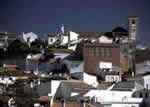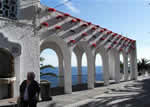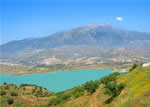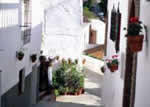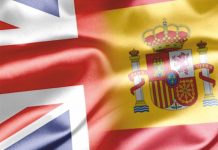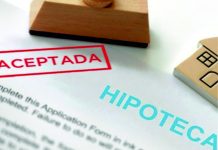
Alex Radford, a solicitor and abogado comunitario with the law Firm De Cotta McKenna y Santafe, explains the pitfalls.
I see lots of adverts for purchases of property in Morocco, Bulgaria, Croatia and Turkey. Whilst all of these countries maybe pleasant places to visit and perhaps even own a second home, the fact that most major cities in the UK now have direct flights to the busy Spanish airports of Mallorca, Malaga, Alicante & Barcelona tells me that people are still voting with their feet and coming to Spain in their droves. In fact it is expected that the varying and travelling British population in Spain estimated by some to be around the million people mark is set to increase year on year on by 20%. Who can blame them, when Spain is less than 2.5 hrs flying time away and now only a short drive to their local airport? Also, in May it was warm enough go swimming when it was less than 7 degrees in the UK!
If you have decided to purchase a property in Spain – and my advice is that now is a good time to buy – then there are important factors to be considered.
Price. You have probably found a property to meet your needs, within your price range and almost certainly cheaper than a similar property in the UK. As enthusiastic as you may be, do not act hastily. Often buyers get carried away and believe everything the seller says. Before you sign any documents or pay any money, ask for a copy of the Escritura also known as the Land Certificate or Property Deed, which will confirm that the owners do own and can sell the property, and then seek advice.
In some instances the seller will insist that to speed up the transaction the buyer and seller use the same lawyer. However, good advice to all prospective buyers is that independent legal advice should always be sought.
Once you have found a lawyer ask him to explain the procedure for buying/selling in Spain and to provide a breakdown of the costs that you will incur in the purchase. Legal, Notary and land registry charges and transfer taxes can add up to 12% of the cost of the property.
The first thing that a lawyer acting for the buyer will do is apply for a land registry search also known as a nota simple. The search result will reveal who owns the property, if there are any charges on the property and its dimensions. Whereas in the UK a local search will reveal details of planning permissions, adopted roads and will come with a plan of the property a ‘nota simple’ will not, and if you are concerned about your views then additional enquiries should be made.
Assuming that all is in order and depending on whether or not the property is built, the parties will either proceed directly to the signing of the Escritura and completion or agree a contract of sale. The contract is frequently used where the property is yet to be constructed or there is delayed completion.
Once the contract is agreed, a deposit (usually 10%) will be paid with the balance payable at the signing of the Escritura. If the property is being constructed, stage payments will be made over the subsequent months with the final payment being made at the signing of the Escritura.
The Escritura once drafted will state who the new legal owners are. Therefore it is important to consider in whose name the property will be held. This will usually depend on whether or not you intend to hold onto the property long term or you have purchased the property as an investment with a view to selling it in the medium term. Professional advice should be obtained as this could have an effect on your capital gains and inheritance tax liabilities at a later date.
The signing of the Escritura will take place after the signing of the contract although it is not unusual to proceed directly to the signing of the Escritura and forgo the contract. If it is unlikely that you will be present for the signing of the Escritura, a deed can be prepared, also known as a Power of Attorney, authorising someone to sign and act on your behalf.
Unless obtained already it is essential you obtain your NIE numbers. These are your Spanish Fiscal Numbers so that transmission taxes can be paid on completion and you will have to apply for them in person at a local Spanish police station or at the Spanish Embassy in your home country which can take time. Without these, completion or registration of the property in the buyers´ names could be delayed so my advice is to apply for them when you are in Spain. We can then arrange to collect them on your behalf if they are not ready before you return home.
Once the Escritura is signed before the Notary the property is yours! CONGRATULATIONS!
Your lawyer will then deal with payment of the transfer of ownership taxes and notary fees and arrange registration of the property in your names.
Two final recommendations: Spanish wills, which you will need to sign in front of a Notary, should be prepared as in the event of death of one of the owners, title does not automatically revert to the surviving co-owner. If you intend to live in Spain for more than 182 days a year, a foreign national residency certificate is required.
Alex Radford is a Lawyer at De Cotta McKenna y Santafé, a law firm specialising in dealing with all aspects of Spanish Law for English speaking clients. The local Nerja offices can be found at:
Calle Diputación 6, 2A
29780 Nerja
Tel: 952 52 70 14
Fax: 952 52 34 28
or
Email: alexradford@decottalaw.net
Website: www.decottalaw.com
If you have a legal question, please forward it to us and we will endeavour to get it answered in a future issue.







